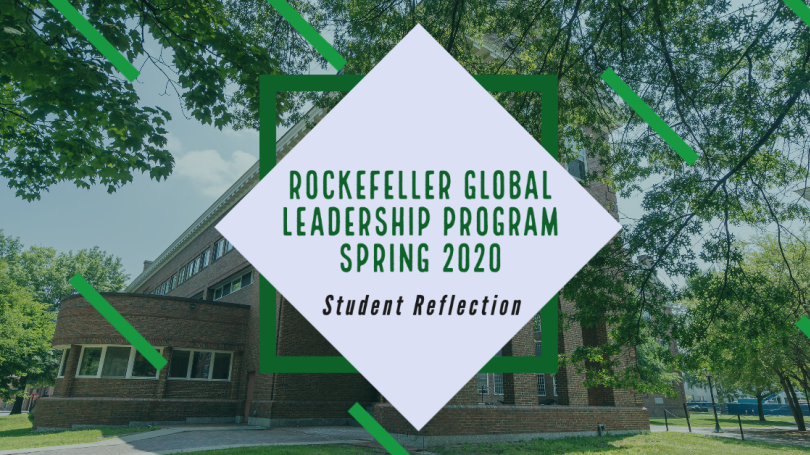
- Public Policy
- Leadership
- Funding
- News & Events
- About the Center
Back to Top Nav
Back to Top Nav
Back to Top Nav
Back to Top Nav
Empathy, compassion, and intercultural curiosity are rooted in initial discomfort, which is a good thing.
Globalization is growing. Our intercultural experiences and worldviews are changing, rapidly. We increasingly have the opportunity to communicate and engage with people and cultures unlike our own. This interconnectedness brings us newfound feelings of empathy, compassion, and curiosity, but only when we allow them to develop through initial levels of discomfort. From the Rockefeller Global Leadership Program, I learned about the challenges we face on an individual and societal level while moving from cultural isolation and ignorance to intercultural respect and understanding.
On the individual level, I learned that you must first challenge your own self-awareness and open-mindedness for the world around you. Everyone develops their own inherent biases from the culture, spaces, and experiences they are exposed to. Neither I, nor any other participant of this program, is an exception. The opportunity we were given and that we must take is to constantly challenge our existing belief systems and perspectives in an effort to find a new level of sensitivity and competency in global contexts.
At a societal level, formal and informal cultures display a value system. When considering others, it is imperative to first think critically about your initial reactions to cultural differences. Whether you feel negatively or positively, why? What does this reflect about your own experiences? What can you do to learn more and understand better? When you start to feel these initial levels of discomfort, then you have reached the opportunity to reflect on and grow from your original viewpoint.
Sessions with the RGLP cohort throughout spring term allowed me to truly challenge myself and my own biases. We discussed the importance of intercultural mindsets, sensitivity, and adaptability. Intercultural competency means using these skills to interpret the world around you with a lens of open-mindedness and empathy rather than premature judgement. We participants pushed ourselves and each other to explore outside our comfort zones and intrinsically reflect before projecting negative assumptions. In the context of COVID-19 and national unrest, these values and skillsets are more important than ever. Self-awareness is vital when thoughtfully contributing to dialogue across cultures and communities at school, in the workplace, and throughout our daily lives. Leadership requires empathy, inclusivity, and respect. As global leaders, we must hold each other accountable to these values.
Read more RGLP Spring 2020 reflections here.